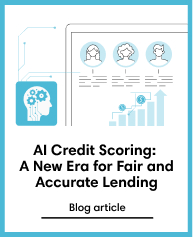Credit Scoring
Jun 9, 2022
A deep dive into credolab's features
Subscribe to our newsletter
Features are insights obtained from metadata coming from mobile phones and web behaviours. While metadata is the raw data, Features are generated by analysing smartphone digital footprints (Android, iOS) and web application form behaviours of customers. Credolab's newest product is the perfect tool for getting to know customers in-depth, building very granular personas, and adding more real-time insights to prevent risky and fraudulent applications.
There is a relationship between data collection and features. Features exist because credolab feeds them to its machine learning algorithms. These analyse huge amounts of data and are used to build non-linear models capable of predicting human behaviour. That is why traditional market research or traditional credit scoring methods are not able to achieve the same results because they don’t have the technology to collect and process this wide variety of valuable data needed to discover untapped insights.
Credolab offers different types of features depending on the use case and the level of sophistication of a data analytics team: 1) basic features, perfect for enriching existing datasets with user-level insights; 2) custom features, ideal for addressing specific needs of a client and built on each client’s requirements; 3) model features, up to 50 of the most predictive features that are included in a production model.
Marketing, churn prevention, fraud, CO versions, and approvals, each one with its own purpose. In this article, we’ll explain further the difference between each type, but it is important to highlight that no matter which kind of features we use, all of them are engineered on non-personal data and data that is not personally identifiable (PII). Therefore these are privacy-safe insights with a protected customer identity in compliance with regulations, including the GDPR in Europe, POPIA in South Africa, LGDP in Brazil, or the CCPA in California.
Marketing Use Case
Companies must know who their target and buyer personas are. Therefore, credolab offers a collection of machine-readable marketing insights made from data points observed at an individual customer level. These marketing features could be used to improve products and services, sales, promotion, branding and enhancing UX.
Marketing features can be collected from Android, iOS or from websites and provide a deep level of information. Among these features, we can obtain a long list of collected device data such as: the hardware type (operating system’s version, phone settings, and SIM card); app insights (total apps installed broken down by category); information about external storage, (insights about the media created or downloaded by the user including music, videos, images, and selfies); calendar events (insights about events with specific characteristics such as organised, confirmed, number of attendees, time zone, weekday vs weekend); among others. This way, it is possible to understand customers more granularly and get to know and predict their behaviours.
Fraud Use Case
Features are also very useful for detecting suspicious behaviour and even preventing fraud through checks that can identify deceit in real time and without processing personal data. Some examples of anti-fraud controls are device and IP velocity, which are useful to analyse the rate at which a user submits multiple applications utilising the same device or IP address within a certain time window, or IP address checks that stop black-listed IP addresses from applying for a loan.
Credolab's range of solutions also includes anti-fraud scores. These are provided as tailor-made models developed to detect the probability of a device being similar to a fraudulent one. For example, the ID fraud score can alert fraud investigation teams to further verify applications that may have KYC concerns (for example, same device but multiple IDs); or detect and stop applications from users that behave similarly to confirmed fraudulent ones based on the analysis of their digital footprints.
Approval Use Case
Another example of how credolab turns raw data into predictive insights is the approval score. Used to monetise users’ intent, the analysis of leads allows them to improve their allocation by ranking offers based on the likelihood of each lead being approved for any financial product. In addition, cross-sell up-sell scores are helpful to monetise existing users by selecting those that are more likely to apply for a loan and trigger notifications of pre-approved loan offers. With these insights, it's also possible to reduce cart abandonment rates at check-out. By ranking and displaying payment options (including BNPL) according to each user's chance to be approved, you also improve the overall shopping experience into one that delights and satisfies.
Credolab’s features are capable of improving business decision processes by solving a wide variety of questions related to sales, marketing, UX and fraud. In addition, the quality of the data obtained is so valuable that companies have become capable of acquiring and retaining more clients in less time, reducing fraud and risk, in compliance with local regulations.
Interested in learning how our products can help you? Request a free demo, or drop us your questions here.





